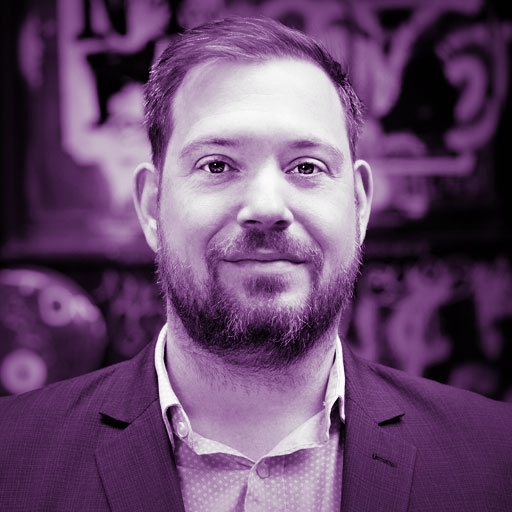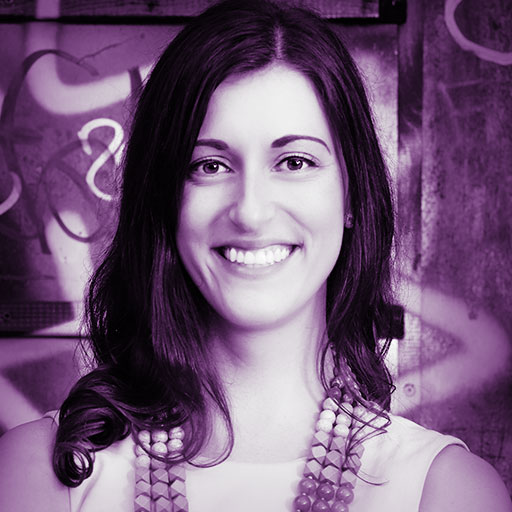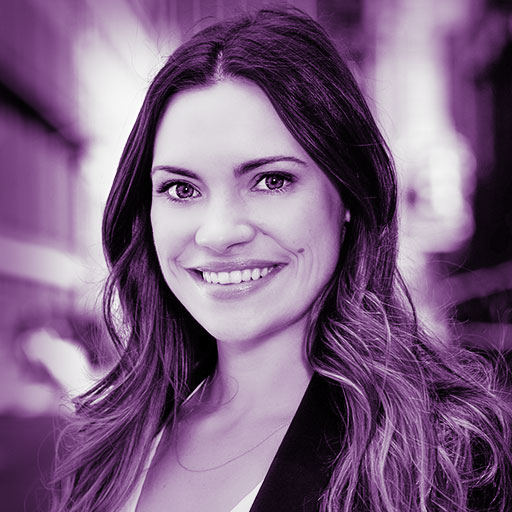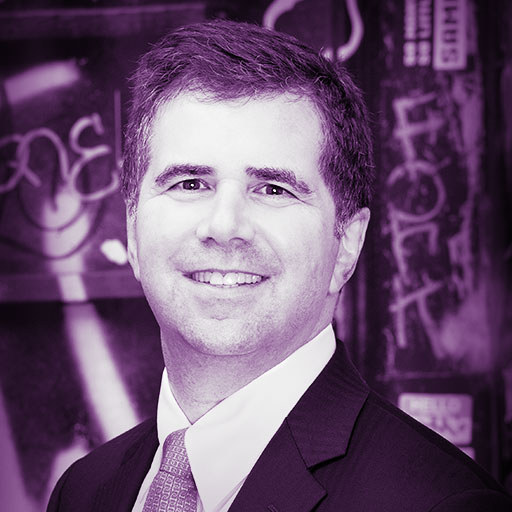Episode 80: Egg Freezing: Preventative Care & Empowerment
A huge misconception in the world of fertility is that egg freezing is an elective procedure and should, therefore, be treated like one. This is absolutely untrue.
Women are born with all the eggs they will produce during a lifetime, therefore, the quality and quantity of viable eggs diminish as time goes on. And doctors are finding the leading cause of female-factor infertility is diminished ovarian reserve starting around age 35.
Advanced technologies, however, allow women to freeze their eggs before this happens, opening up the possibility of having biological children at some point down the line. In today’s episode, we hear from two women who did exactly that.
Brandi Guthrie and Julie Hunt, both Progyny employees, went through the egg freezing process for different reasons, had different highs and lows, but came out feeling the same thing: empowered and in control of their futures. We also hear from Dr. Alan Copperman on the benefits of fertility preservation.
Guests: Julie Hunt, Director, Business Development at Progyny, Brandi Guthrie, National Account Manager at Progyny, and Dr. Alan Copperman, Medical Director at Progyny
Host: Dan Bulger
For more information visit Progyny’s Podcast page and Progyny’s Education page for more resources.
Be sure to follow us on Instagram, @ThisisInfertilityPodcast and use the #ThisisInfertility.
Have a question, comment, or want to share your story? Email us at thisisinfertility@progyny.com.
Here are some highlights from this episode:
Fertility Preservation Should Not be Considered Elective
3:00 – 4:05
Dan Bulger: We asked Dr. Copperman why fertility preservation should not be considered elective.
Dr. Alan Copperman: The more we freeze eggs and preserve fertility, the more we realize that there’s nothing elective about the medical procedure. This is basic preventative health. Nobody talks about elective colonoscopies, elective teeth cleaning, elective mammography. Why would we talk about elective egg freezing? This is a procedure that is preventing infertility and ovarian aging later on.
Dan Bulger: On the surface, the choice to use the word elective may seem trivial, but words have power and certain words can be used to diminish. The word elective trivializes the procedure. This isn’t fair to the people who need it.
Dr. Alan Copperman: When we use the word elective, it has so may societal stigmas, it trivializes it, it even has tax implications. So the word elective takes away from the essential nature of any healthcare procedure.
Dan Bulger: So let’s get right to the heart of it – egg freezing isn’t a social or elective procedure that young people can tweet about. It’s a real medical procedure that helps prevent a real disease.
Brandi’s Decision to Freeze Her Eggs
6:59 – 9:12
Brandi Guthrie: I had just come off of a summer of about eight weddings and three or four baby showers. And you know, I’m 29 years old and the majority of my friends have already started their lives with their partner and were having babies. I thought to myself, like, this sucks. I am watching all of my friends start their lives, and here I am deciding, am I going to freeze my eggs because I may need them in the future if I don’t meet my person semi-soon? I didn’t realize how much it would affect me mentally – that was a surprise. I struggled with the idea of wow, I actually have to do this because my life is not where I thought it would be. But then I started thinking of it as a positive thing and was in a good place. It was a decision I had to make for myself.
Julie’s Decision to Freeze Her Eggs
9:46 – 12:41
Julie Hunt: I don’t know if I personally want kids. And if I did do it, I knew I would be doing it way later. And I knew that I would likely be over the age of 35 when I started to consider potentially maybe having a family. And I knew that the risks in terms of my ovarian reserve depleting would have started after age 35. So it just made sense for me to freeze my young 28 year old eggs. So 28 was my ideal age.
Dan Bulger: As we established having coverage for fertility preservation and having lots of knowledge about fertility in general and the fertility industry at large, Brandi and Julie had less roadblocks in their path than others. That being said, it’s not as if egg freezing is a simple one day out of office procedure. The process takes over a week and involves lots of injectable medications that patients have to administer themselves.
Egg Freezing While in a Relationship
14:56 – 16:40
Dan Bulger: Julie and Brandi both mentioned that their boyfriends helped out along the way with the injections. This next part is about the reactions from their boyfriends to the news that the ladies were going to freezing their eggs.
Brandi Guthrie: No, it was never awkward, we have very open communication and really never hold anything back. I think a small part of me was a little concerned about how he would react, but he didn’t really say much about it. He supported me from day one and he ended up doing a lot of my injections for me.
Julie Hunt: I pretty much told Neil on our first date that I was going to freeze my eggs. I’ve been with Neil for over four years now and I was like, yup, I don’t know if I want kids, but I’m going to freeze my eggs so I don’t feel pressure about it. And he was like, okay, yea, sure, that totally makes sense and fast forward four years later, he could not have been more supported. He made me love him more seeing how he stepped up. He was and still is my biggest cheerleader.

Host
Dan has been in the healthcare industry for the last six years as a multimedia content producer. Better known as ‘Video Dan’ he as interviewed numerous doctors, patients and other experts in the world of fertility. He’s also the producer for this podcast, This is Infertility. On a personal note Dan’s parents started fostering kids when he was four years old, and he considers himself a proud older brother to over 100 foster children.

Guest
Julie has been working in the fertility industry for the last seven years. She started her career as a Patient Care Advocate (PCA), a fertility specialist that helps a patient navigate through their fertility journey. Through her experience, Julie was able to expand her role within Progyny and transition into Business Development as a Manager. Today, she leverages her PCA experience and passion for helping individuals achieve their dreams of having a family by helping employers understand infertility and comprehensively cover fertility treatment as part of their healthcare benefit. Julie was diagnosed with Polycystic Ovarian Syndrome (PCOS) in March of 2018. As a proud sister of a gay brother, she passionately supports and empowers the LGBTQ+ community and is an avid advocate for inclusivity and equality.

Guest
As a National Account Manager, Brandi helps employers bring new life to their fertility benefits. Prior to this, she was a Provider Account Manager where she spent years working with the nation’s leading fertility doctors and clinics in the Progyny network. Her expansive background gives Brandi the perspective, experience, and understanding that she needs to help employers and their employees reach their goals of family.

Guest
Dr. Alan Copperman is a board-certified reproductive endocrinologist and infertility specialist with a long history of success in treating infertility and applying fertility preservation technologies. He serves as Medical Director of Progyny, a leading fertility benefits management company, and co-founded and serves as Medical Director of RMA of New York, one of the largest and most prestigious IVF centers in the country. Dr. Copperman is also the Vice Chairman and Director of Infertility for the Icahn School of Medicine at Mount Sinai, and Chief Medical Officer of Sema4, a health information company. Dr. Copperman has been named to New York magazine’s list of Best Doctors 18 years in a row. He has been recognized by his peers and patient advocacy organizations for his commitment to patient-focused and data-driven care. He has published more than 100 original manuscripts and book chapters on reproductive medicine and has co-authored over 400 scientific abstracts on infertility, in vitro fertilization, egg freezing, ovum donation, and reproductive genetics.
Music From This Episode:
Artist: Jahzzar
Track: Joke
URL: https://freemusicarchive.org/
Artist: Lee Rosevere
Track: Easy Life
URL: https://freemusicarchive.org/
Track: Making A Change
URL: https://freemusicarchive.org/
Track: Wandering
URL: https://freemusicarchive.org/
Artist: Mise Darling
Track: No One
URL: https://freemusicarchive.org/
Artist: Loyalty Freak Music
Track: I Care
URL: https://freemusicarchive.org/
Artist: Meydan
Track: Underwater
URL: https://freemusicarchive.org/



